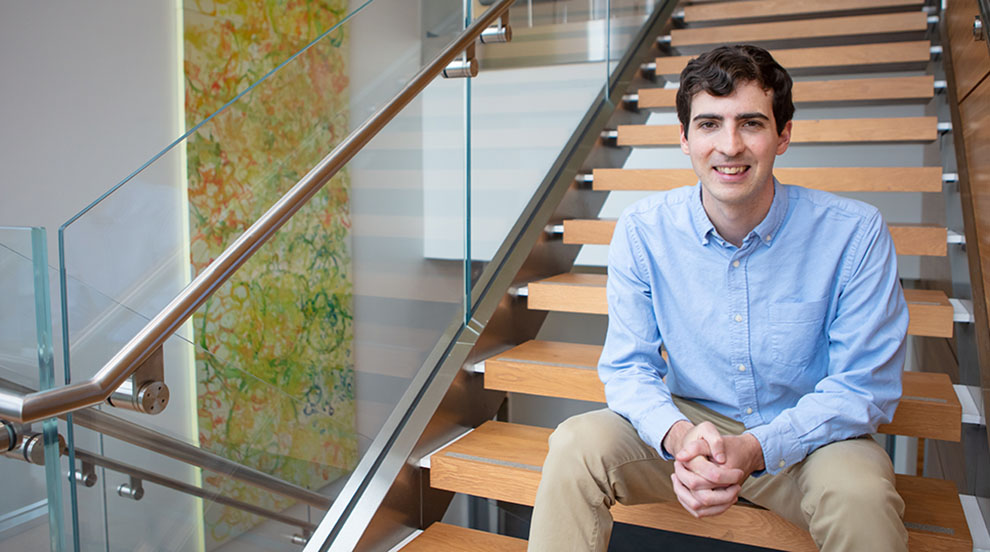
Glioma is a deadly brain cancer for which there are no effective treatments. The most common form, glioblastoma, kills most patients within one or two years. Immunotherapies have revolutionized the treatment of many cancers but have shown minimal benefit in glioma. JAX postdoctoral associate Frederick Varn, Ph.D.Integrates genomic and molecular pathology approaches to investigate how the tumor microenvironment drives development and treatment resistance in brain tumors.Frederick Varn, Ph.D. , has received a prestigious fellowship from the Jane Coffin Childs Memorial Fund for Medical Research to discover why. Varn believes the ineffectiveness of immunotherapies may be due, in part, to escape mechanisms that arise early in the tumor’s development. By identifying these mechanisms and determining how they occur he hopes to uncover new sensitivities for treatment.
Since the turn of the century, cancer treatment has been transformed by a new strategy: immunotherapy. Our immune system evolved to eliminate dangers from our body – invading viruses, bacteria, and cancer cells. But some cancer cells can evade or ignore the immune system, allowing tumor growth. Immunotherapies reprogram the immune system to renew its attack on cancer cells.
“Immunotherapies have shown amazing results in different cancers, but progress has been limited in glioma. Figuring out why will be an important step toward developing better glioma treatments,” said Varn. He thinks that the problem arises early in disease progression.
Varn, working with JAX professor Roel Verhaak, Ph.D., was awarded the $169,800 fellowship to determine precisely how immune cells and glioma tumor cells interact with each other and assess how these interactions change in response to conventional therapy. Varn’s fellowship was selected for additional recognition by Merck & Co., which sponsored two of the elite fellowships through a philanthropic gift.
“The support from the Jane Coffins Childs Memorial Fund for Medical Research means the world to us, not just because it enables Fred to pursue the research he is most interested in, but also because the opportunities it will afford for his career,“ said Verhaak.
Varn came to Verhaak’s lab after his Ph.D. work at Dartmouth College, working with Chao Cheng, Ph.D. There, Varn used computational tools to determine how tumor cells and immune cells interact in a spectrum of cancers. Now Varn is focusing specifically on glioma, combining analyses of patient data with functional experiments in mouse models to unravel the complex tumor-immune cell interactions.
The Jane Coffin Childs Memorial Fund for Medical Research focuses on cancer research and makes only a small number of awards to highly meritorious postdoctoral researchers each year. The committee that selects the awardees consists of eminent researchers, among them 22 Nobel Prize winners since the Fund’s inception. Six grantees and fellows of The Jane Coffin Childs Memorial Fund for Medical Research have themselves gone on to win the Nobel Prize.
One of the Fund’s earliest awards sponsored Dr. C.C. Little’s fundamental work in mouse breeding and genetics in the first days of The Jackson Laboratory. Now, almost 90 years later, Varn and JAX once again benefit from the Jane Coffin Childs Memorial Fund for Medical Research’s recognition of exceptionally promising and critical research.
“This fellowship will provide me with the support I need to begin answering these questions. I am thrilled to have been selected and I am excited to see what we learn from this project,” said Varn.